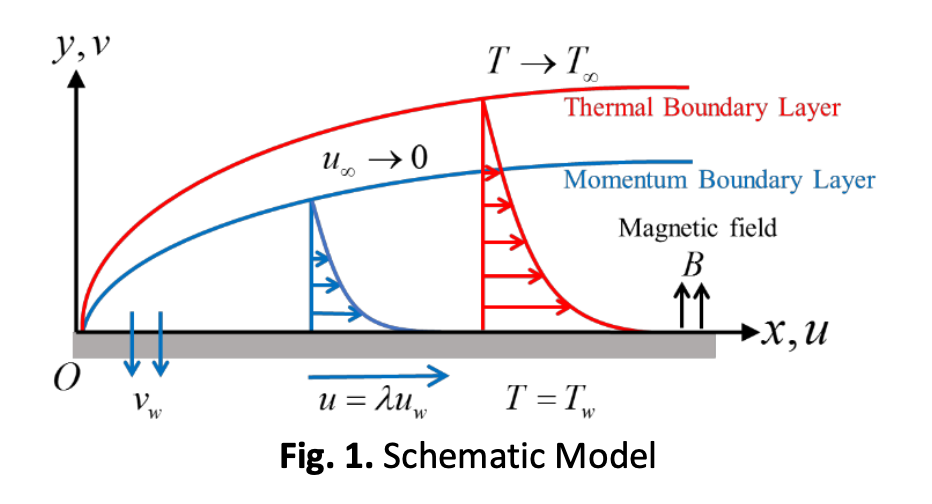Flow and Thermal Characteristics of Couple Stress Fluid over a Stretching Surface with Hybrid Nanoparticles
DOI:
https://doi.org/10.37934/arfmts.111.2.107115Keywords:
Couple stress fluid, hybrid nanofluid, aluminium alloys, methanol, stretching surfaceAbstract
In the current research, a mathematical analysis of couple stress fluid flow and heat characteristics through a stretchable permeable surface with hybrid nanoparticles is conducted. The solid nanoparticles of the aluminium alloys (AA7072 and AA7075) are suspended in methanol to create the hybrid nanofluid. The similarity approach is used to reduce the governing equations into the similarity equations. Then, MATLAB's bvp4c function is employed to solve the resulting equations. The solutions for the flow and temperature fields, as well as the skin friction coefficient and Nusselt number are presented in table and graphical forms. The results demonstrate that hybrid nanofluids excel as thermal conductors, significantly augmenting the heat transfer rate. The heat transfer rate is increased by 0.38% for the nanofluid, while 0.89% increment for the hybrid nanofluid compared to the base fluid. Furthermore, a larger couple stress parameter is found to be associated with a decrease in the fluid temperature and an enhancement in fluid velocity.
Downloads

































